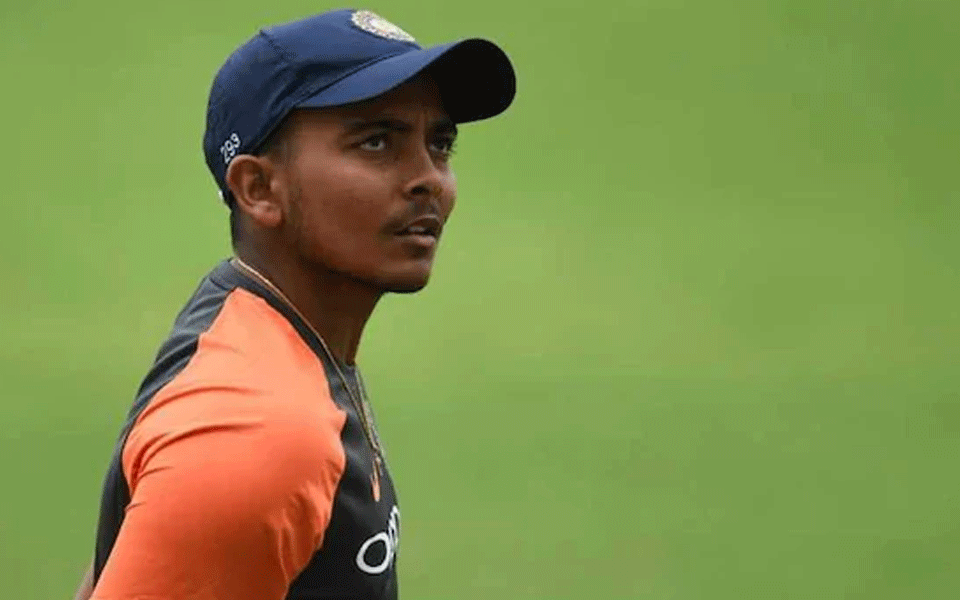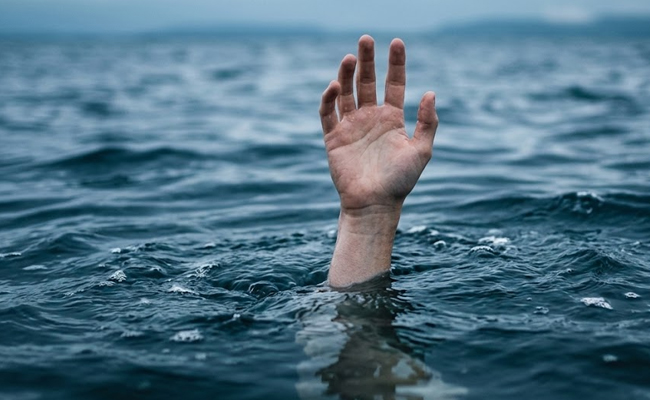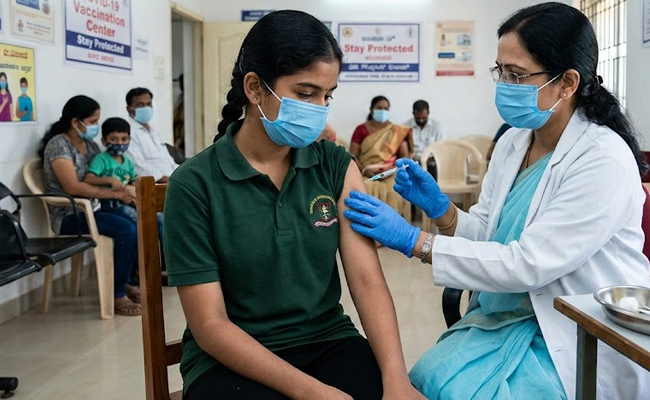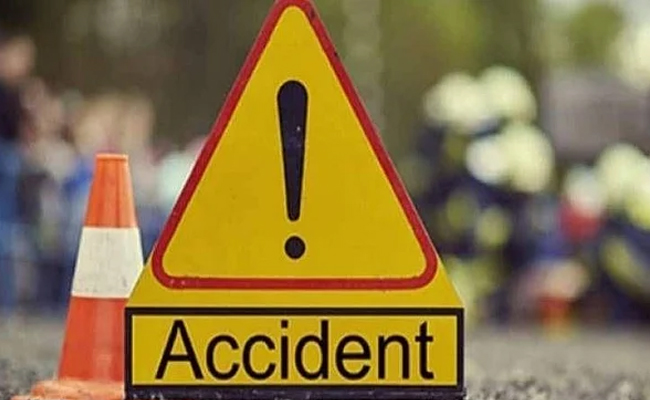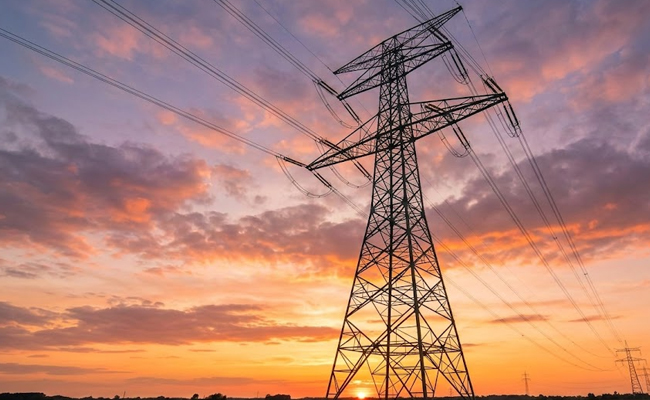New Delhi, Jul 30: Talented India opener Prithvi Shaw was on Tuesday banned from all forms of cricket for a period of eight months after failing a dope test, the BCCI said.
A BCCI release said Shaw had "inadvertently ingested a prohibited substance, which can be commonly found in cough syrups".
Shaw's suspension is retrospective in nature, starting from March 16 and ending on November 15.
Apart from Shaw, two other cricketers Akshay Dullarwar and Divya Gajraj were also suspended for the same offence.
Shaw had provided a urine sample as part of the BCCI's anti-doping testing programme during the Syed Mushtaq Ali Trophy on February 22, 2019 in Indore. His sample was subsequently tested and found to contain terbutaline.
"Terbutaline, a specified substance, is prohibited both In and Out of Competition in the WADA Prohibited List of Substances," the BCCI release stated.
"Prithvi Shaw registered with Mumbai Cricket Association, has been suspended for doping violation," the BCCI said.
Terbutaline is generally used to treat problems related to breathing and can be consumed if the athlete in question avails a Therapeutic Use Exemption (TUE) certificate in advance, which Shaw didn't avail.
The 19-year-old, who has played two Test matches for India scoring 237 runs with a hundred and a half-century, had earlier pulled out of India A's one day and Test series against West Indies A reportedly due to a hip injury.
The 19-year-old junior World Cup winning skipper had made a mark last year, hitting a hundred on Test debut against the West Indies, but was sent back from the tour of Australia after twisting his ankle during a practice game.
Shaw is currently at the National Cricket Academy undergoing rehabilitation for a reported hip injury, but the BCCI statement is an indicator that he was pulled out of Mumbai Premier League after testing positive.
The BCCI said that Shaw was charged with violating BCCI's Anti-Doping Rules (ADR) article 2.1.
"On 16th July 2019, Shaw was charged with the commission of an Anti-Doping Rule Violation (ADRV) under the BCCI Anti-Doping Rules (ADR) Article 2.1 and provisionally suspended pending determination of the charge.
"Shaw responded to the charge by admitting the ADRV but asserting that it was inadvertent, being caused by his ingestion of the over the counter cough syrup he had taken for his cough," the release stated.
Shaw explained that he had taken terbutaline inadvertently to treat a respiratory tract infection and not as a performance-enhancing drug.
"Having considered all of the evidence and taken expert external advice, the BCCI has accepted Shaw's explanation of the cause of his ADRV, and on that basis has agreed that a period of ineligibility of eight months should apply, together with disqualification of certain results," the BCCI ruled.
The BCCI then explained why the suspension was back-dated.
"Under BCCI ADR Article 10.10.3, Shaw is entitled to full credit against that period of ineligibility for the provisional suspension that he has been serving since 16th July 2019.
"In addition, because Shaw promptly admitted his ADRV upon being confronted with it by the BCCI, there is discretion under BCCI ADR Article 10.10.2 to back-date the start of the period of Ineligibility to the date of sample collection (22nd February 2019). However, the BCCI ADR Article 10.10.2 also requires Shaw to actually serve one half of the period of ineligibility," BCCI said.
"Therefore, further to BCCI ADR Article 10.10.2, the eight-month period of Ineligibility will be deemed to have started to run on 16th March 2019, so that it will end at midnight on 15th November 2019."
However, the BCCI's rules would allow Shaw to start training from September 15.
Along with Shaw, Vidarbha U-23 player Dullarwar has also been suspended for eight months after he tested positive for Desacetyl Deflazacort, a metabolite of Deflazacort. He was playing a BCCI U-23 one day game.
Rajasthan's U-19 cricketer Gajraj has been suspended for six months after he was found to have taken acetazolamide, a diuretic and masking agent, during a Cooch Behar Trophy game.
— Prithvi Shaw (@PrithviShaw) July 30, 2019
Let the Truth be known. If you read VB and like VB, please be a VB Supporter and Help us deliver the Truth to one and all.
Bhubaneswar (PTI): At least three persons, including a boy, drowned while taking a bath after celebrating Holi at separate places in Odisha on Wednesday, police said.
While two incidents took place in Jajpur district, the third one happened in Cuttack district.
A report from Jajpur said that a man, identified as Sangram Ajitabh Das (40) of Padmapur area under Jajpur Road police limits, drowned while bathing in the Kharasrota river after the celebration of Holi in Byasanagar area in the afternoon.
His body was recovered and sent for postmortem examination.
In another incident from the same district, a youth identified as Hiranya Kumar Behuria of Bari area, also drowned in the Brahmani river at Khari Padia in Jajpur.
A report from Cuttack district said that a boy, identified as Jeevan Behera, drowned while bathing in the Mahanadi river in Baramba area along with friends. He was swept away by the river current, police said.
Fire Service personnel found the minor and took him to a hospital, where doctors declared him dead on arrival, police said.

